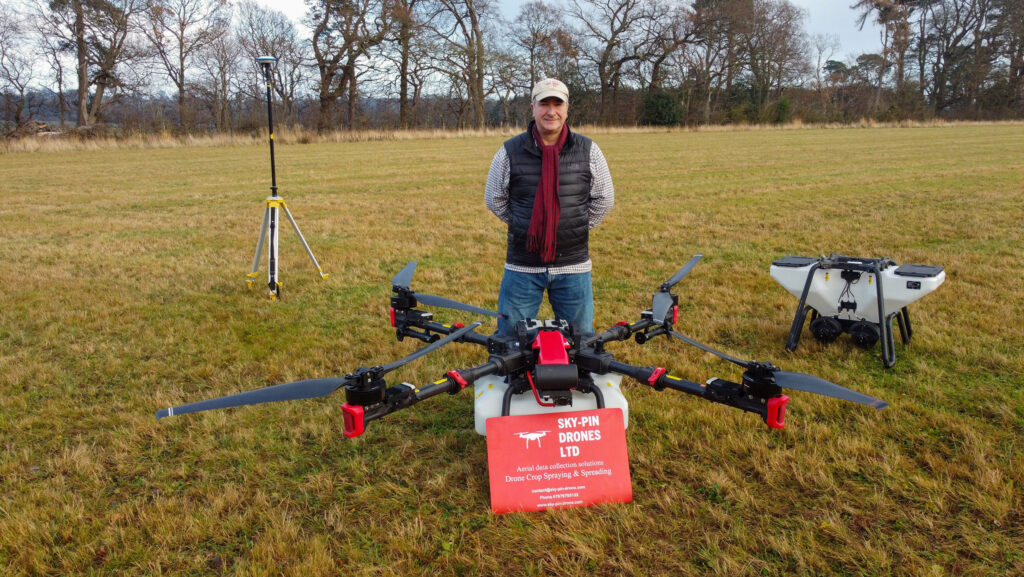Scotland’s first drone crop-spraying service set to launch
 James Braid with the drone © Sky-Pin Drones Ltd
James Braid with the drone © Sky-Pin Drones Ltd Sky-Pin Drones, a Scottish business led by entrepreneur James Braid, will become the first in Scotland to offer advanced crop spraying services using a drone.
This new service, set to launch in summer 2025, follows a £48,000 loan from the British Business Bank’s Investment Fund for Scotland.
Mr Braid founded Sky-Pin Drones in 2019, offering multispectral plant health and aerial mapping surveys to assist landowners and farmers across Scotland.
See also: Widespread adoption of drone spraying edges closer
With the growing demand for precision agriculture, Mr Braid expanded into crop spraying and spreading, including for conservation projects and horticulture.
Mr Braid emphasised the growing role of sustainability in farming: “Sustainability is playing an increasingly vital role in modern farming, and I’ve noticed a growing shift among my clients toward adopting more biodiverse products and practices.
“The drone technology I use is specifically designed to enhance sustainability by reducing chemical usage and promoting environmentally friendly approaches.”
To become Scotland’s first qualified drone operator for agricultural spraying, Mr Braid completed a certification with AutoSpray Ltd, Precision Spray, and Harper Adams University.
The 110kg drone, capable of spraying 150kg of material per minute, integrates multispectral sensors that capture data beyond the visible spectrum, allowing farmers to reduce chemical usage and optimise fertiliser application.
Aerial spraying regulations
Aerial spraying has been banned in the EU since 2009, with limited exceptions granted under special permits that are closely regulated by the Health and Safety Executive (HSE).
With the UK no longer part of the EU, these regulations may differ, but the HSE remains the authority on aerial pesticide use in the UK.
The HSE requires anyone conducting aerial spraying to follow an approved application plan, with specific operations permitted only under HSE oversight.
The HSE classifies drone pesticide application as aerial spraying, meaning it must adhere to the same strict regulations and application plans as traditional methods.
The HSE says it must be satisfied that such spraying does not harm human health or negatively impact the environment.
Drones, or “unmanned aerial vehicles”, have become increasingly popular in precision farming, offering valuable data on crop health, vigour, and water stress.
Sky-Pin Drones’ new services hope to support environmental efforts such as peatland restoration and sustainable land management.
Sarah Newbould, senior investment manager at the British Business Bank, said: “Sky-Pin Drones is an innovative business offering technology that can significantly benefit the environment.
“The Investment Fund for Scotland supports businesses like this to access the finance needed for growth.”

